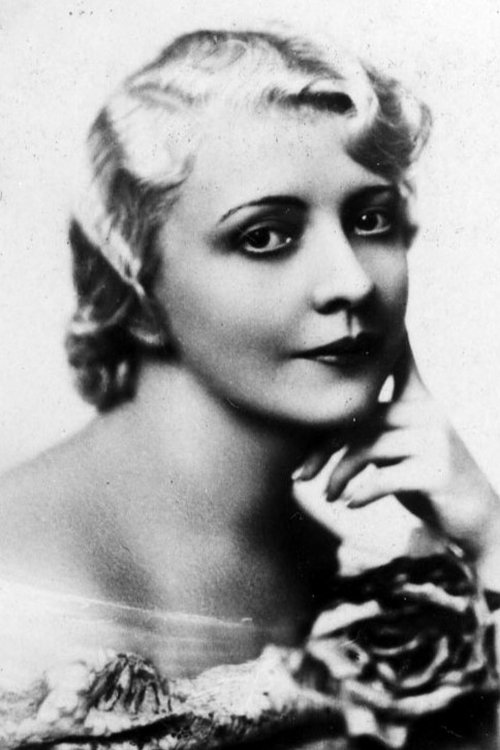
|
Gehetzte Frauen (1927)
Character: Gildi
The aging singer Clarina receives a new engagement from a cabaret called the Maison Mouche and must evade the advances of several overbearing men. This film is considered lost.
|
|
|
|

|
Aphrodite (1918)
Character: Camilla
Tragedy strikes after a painter has an affair with the wife of a prince.
|
|

|
A csábító (1918)
Character: Edith
A young woman falls for a flirtatious count only to find that he has no intention of marrying her. To her distress, the count still pursues her even after she has married another.
|
|
|
|

|
Az élet királya (1918)
Character: Hetti
A corrupt young man somehow keeps his youthful beauty, but a special painting gradually reveals his inner ugliness to all.
|
|

|
Egy az eggyel (1920)
Character: N/A
Camilla comes from a well-to-do provincial family. She turns down her country suitors because of their lack of culture and her urban suitors because of their immorality. Finally she falls in love with a poor young artist who is painting her portrait on commission of her father. The chances of their marrying appear slim because of the painter’s modest situation but still they get engaged in secret.
|
|

|
Die große Sehnsucht (1930)
Character: Herself
This is a real curiosity; at best a reasonable film, but also a charming little gem. There is a story (in the line of "A Star is Born"), but this merely serves as an excuse, as it is more importantly a kind of moving encyclopedia of about 35 stars making their debut in a talkie (although some of them had already made one talkie), of the technical sound possibilities and of film making. Besides all that, it is entertaining and sometimes hilarious and it has fine one-liners that split my side. The film is also remarkable for making mock of typical German film genres (like the overly sweet romances involving the military), of too heavy acting and of film making in general. I have to mention this one: a short, hysterically funny parody of "Der blaue Engel". What this film in fact says is: do not take any film too seriously. (J. Steed)
|
|
|
|

|
Die Heilige und ihr Narr (1928)
Character: N/A
Agnes Günther’s heart-rending fairy tale dazzled turn-of-the-century German audiences and sold hundreds of thousands of copies before being adapted into this tale of timeless passion, the beautiful The Saint and the Fool. The unapologetically sentimental classic was directed by Wilhelm Dieterle, who launched a successful career in Weimar cinema before becoming known for romantic, lush melodramas and technicolor extravaganzas, including 1945′s Marlene Dietrich unforgettable Love Letters. The dashing Dieterle himself plays Harrogate, Earl of Torstein, whose star-crossed love for the luminous Rosemarie of Brauneck (Lien Deyers, discovered by Fritz Lang) is further doomed by royal heroes and villains, the requisite evil stepmother, and fantastical elements that channel the intoxicating romance of Camille through the magic of the Brothers Grimm.
|
|

|
Waterloo (1929)
Character: Ihre Zofe
This presentation of 'Waterloo', a film by Karl Grune about the last hurrah of Napoleon, is a fascinating companion to the Abel Gance epic 'Napoleon'. 'Waterloo' presents a tale of several people involved in the final battle. Napoleon and Wellington, of course, but also the Austrian general Blutcher (who is seen as a ladies' man - his scene with a flirty Countess about halfway through the film is priceless; as are his touching scenes with his plain wife (who he imagines to be a young and nubile girl when they get romantic) and some people within his regiment. Not simply a film of war, 'Waterloo' is a story of people, of lovers, of lost opportunities.
|
|

|
Am Rande der Welt (1927)
Character: Die Frau des Johannes
A mill situated on the border between two unnamed countries and the residents therein become pawns in a future war.
|
|











